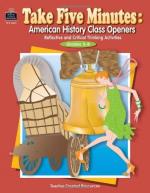|
This section contains 687 words (approx. 3 pages at 300 words per page) |

|
The Amateur Ideal.
Many of the sports played in late-nineteenth-century America were considered amateur, meaning that the contestants did not earn a living from their athletic pursuits. Individuals who earned a living from athletic competition, either in the form of a salary or prize money, were professionals, and they competed apart from the amateurs. Amateurism originated in England, where it operated to prevent the working classes from competing against the landed aristocratic elite. In England amateurism, practiced in its purest sense, meant that an individual who earned a living from competition was considered a professional and, therefore, ineligible for participation in amateur sport. English amateurism also carried a code of sportsmanship, in which winning was secondary to gentlemanly competition. America inherited the concept, if not the practice, of amateurism from England. In America amateurism operated to insulate sportsmen of wealthy Anglo-Saxon Protestant roots from...
|
This section contains 687 words (approx. 3 pages at 300 words per page) |

|




